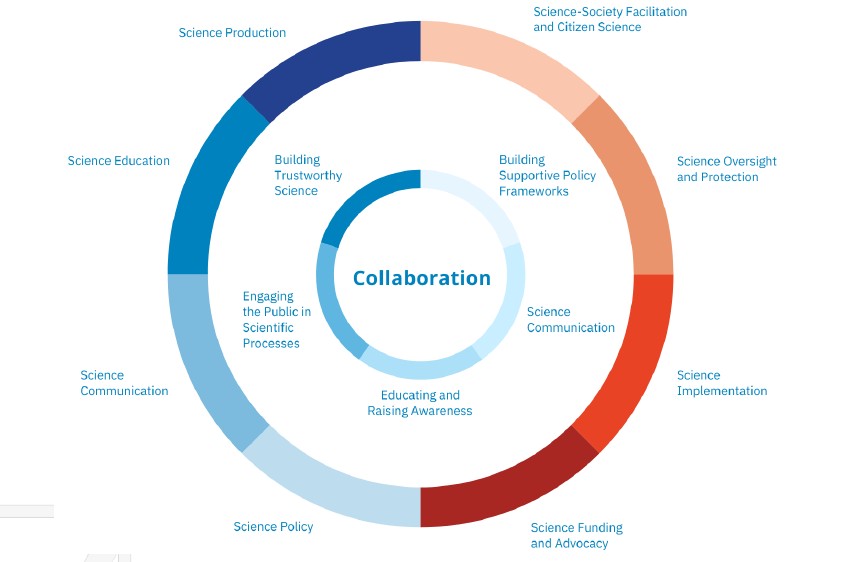The Protocol positions policymakers as core Stewards of Trust (SoT), with a central role in bridging gaps between science, society, and governance in the Ecosystem of Trust in Science. It responds to the urgent need for more inclusive, transparent, and collaborative models that can navigate
today’s fragmented information landscape and complex scientific environment.
Dissemination and promotion of the Protocol are led in part by the Centre for Social Innovation (ZSI), which is responsible for helping communicate VERITY’s results to broader stakeholder communities and media across Europe. With its expertise in research-driven communication and strategic dissemination, ZSI ensures that key messages reach policymakers, civil society, and institutional networks. ZSI’s team brings together R&I experts skilled in qualitative and quantitative empirical research. Their contribution to VERITY includes methodological leadership in participatory research methods (WP3), such as focus groups and vignettes, and key roles in bridging science and policy through the co-development and validation of the VERITY Protocol (WP4). In this context, their methodological expertise was also instrumental in developing theCitizen Media Lab, contributing to VERITY’s impact and outreach.
WHY TRUST IN SCIENCE MATTERS?
The traditional Ecosystem of Trust in Science, previously led by established institutions and governed by fixed norms, is being reshaped by new actors, including influencers, community leaders, citizen scientists, private enterprises, and public-private partnerships. At the same time, social media, digital platforms, and rising mis- and disinformation complicate the relationship between scientific integrity and public confidence. While surveys show that trust in science remains
generally high across Europe, this trust does not always translate into public support for sciencebased policies. The VERITY Protocol helps address this gap, offering a systemic approach to understand, along with specific recommendations to reinforce, the evolving Ecosystem of Trust in Science and the roles of various actors as Stewards of Trust (SoT).
– VERITY reshapes the ‘ecosystem of trust in science’, a dynamic conceptual space where societal trust in science is formed, shaped, negotiated, and influenced. We broaden the scope of trust in science, including new stakeholders like companies, influencers, and peers, and build joint responsibility for maintaining, enhancing, repairing, and nurturing societal trust in science – wrote Agata Gurzawska, VERITY Project Coordinator.
A NEW APPROACH: CO-CREATION WITH OVER 500 STAKEHOLDERS
Developed through a citizen media lab and a scencario building workshop (ZSI was task leader this task), focus groups, and surveys involving more than 500 stakeholders, the VERITY Protocol identifies six core strategies to build trust in science:
• Trustworthy Science – Foster open science, research integrity, ethical standards, inclusivity, and transparent funding practices.
• Public Engagement – Involve citizens as cocreators across the research cycle. Promote recognition of their contributions to science.
• Education & Awareness – Strengthen digital and science literacy through curricula and public campaigns. Counter mis/disinformation and echo chambers.
• Science Communication – Enhance transparency, accessibility and relatability in conveying scientific knowledge.
• Supportive Policy Frameworks – Craft inclusive, transparent, evidence-informed policies. Avoid cherry-picking science to support
political agendas.
• Cross-sector Collaboration – Encourage partnerships across disciplines, sectors, and borders to foster a resilient, innovative science ecosystem.
Further results and an outlook can be found in the final press release of the VERITY project.

